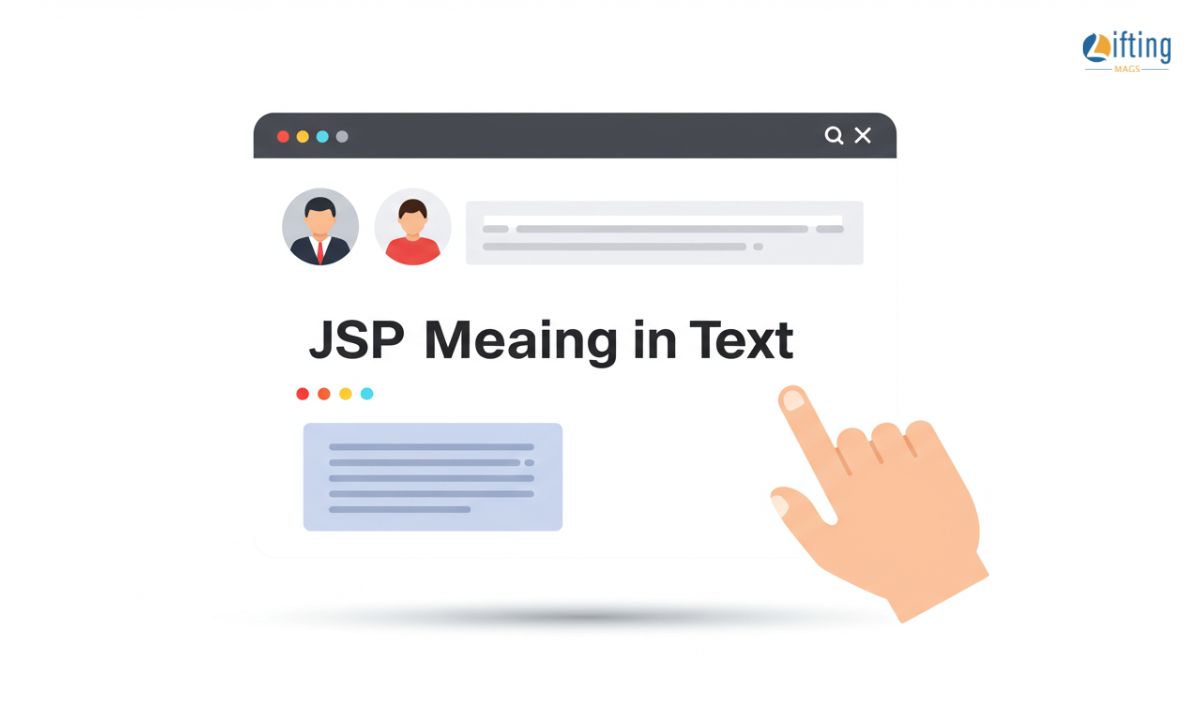In the fast-paced world of digital communication, abbreviations and acronyms have become essential for quick and efficient messaging. One such abbreviation that often appears in text messages and online conversations is “JSP.” But what does “JSP” mean in text, and how can you use it appropriately in different contexts?
Definition & Meaning
JSP stands for “Just Saying, Period.” It’s often used to emphasize a statement, similar to saying, “That’s my final thought.” (textscode.com)
However, the meaning of JSP can vary depending on the context:
- JavaServer Pages (JSP): In the realm of web development, JSP refers to JavaServer Pages, a technology used to create dynamic web pages. (GeeksforGeeks)
- Jump Street Productions (JSP): In the entertainment industry, JSP stands for Jump Street Productions, a company known for producing various media content. (Jump Street Productions)
Understanding the context in which JSP is used is crucial to interpreting its meaning correctly.
Examples in Conversations
To better understand how JSP is used, here are some examples in different contexts:
- Texting:
- “I’m not interested in that movie, JSP.”
- “That was a great performance, JSP.”
- Social Media:
- “Just finished reading that book, JSP.”
- “Had an amazing time at the concert, JSP.”
- Gaming:
- “Carried the team to victory, JSP.”
- “That was a close match, JSP.”
In each of these examples, JSP is used to emphasize the speaker’s final opinion or statement.
Background & History
The use of abbreviations like JSP has evolved with the rise of digital communication platforms. In the early 2000s, with the advent of text messaging and online forums, users began shortening phrases to communicate more efficiently. Over time, these abbreviations became widely adopted across various platforms, including social media and gaming chats.
The exact origin of “Just Saying, Period” is unclear, but it likely emerged from online communities as a way to assert one’s opinion without further discussion.
Usage in Various Contexts
Texting & Social Media
In casual conversations, JSP is often used to end a discussion or emphasize a point. It’s a way of saying, “This is my final thought on the matter.”
Example:
- “I don’t think that’s a good idea, JSP.”
Gaming
In gaming communities, JSP can be used to assert dominance or express confidence after a match.
Example:
- “That was an easy win, JSP.”
Professional Settings
JSP is generally not recommended in professional settings. Its informal nature can be perceived as unprofessional or dismissive.
Example:
- Instead of saying, “I’ll handle that task, JSP,” a more professional approach would be, “I’ll take care of that task.”
Common Misconceptions
There are several misconceptions about JSP:
- Myth: JSP always means JavaServer Pages.
Fact: In casual conversations, JSP often means “Just Saying, Period.” - Myth: JSP is always rude.
Fact: The tone of JSP depends on the context and how it’s used.
Understanding these nuances is essential to using JSP appropriately.
Similar Terms & Alternatives
There are several other abbreviations that convey similar meanings to JSP:
- JS: Just Saying
- “Just wanted to let you know, JS.”
- TBH: To Be Honest
- “That movie was overrated, TBH.”
- IMO: In My Opinion
- “IMO, that’s not a good idea.”
These alternatives can be used depending on the tone and context of the conversation.
How to Respond to JSP
When someone uses JSP in a conversation, your response can vary based on the context:
- Casual Response:
- “Got it, JSP.”
- Humorous Response:
- “Just Saying, huh? Well, noted.”
- Professional Response:
- “Understood. Let’s move forward.”
Tailoring your response to the situation ensures effective communication.
Regional or Cultural Differences
The interpretation of JSP can vary across different cultures and regions:
- United States: JSP is commonly used in casual conversations to emphasize a point.
- United Kingdom: The use of JSP is less common, and its meaning may not be widely recognized.
Understanding regional differences can help avoid misunderstandings.
Is JSP Offensive?
JSP is generally not offensive, but its tone can be perceived as dismissive if used aggressively. It’s important to consider the context and relationship with the person you’re communicating with.
Example:
- “I don’t think that’s a good idea, JSP.”
This can be seen as dismissive if not used appropriately.
FAQs
Q: Can I use JSP at work?
A: It’s best to avoid using JSP in professional settings due to its informal nature.
Q: What if someone uses JSP rudely?
A: Respond calmly and professionally to maintain effective communication.
Q: Are there age or generational differences in understanding JSP?
A: Yes, younger generations who are active on digital platforms are more likely to understand and use JSP.
Conclusion
Understanding the meaning and appropriate use of JSP is essential for effective communication in digital spaces. Whether you’re texting a friend, engaging in a gaming chat, or navigating social media, knowing when and how to use JSP can enhance your interactions. Always consider the context and your audience to ensure your message is received as intended.

